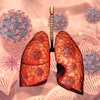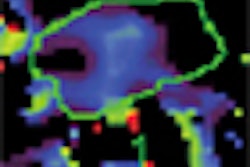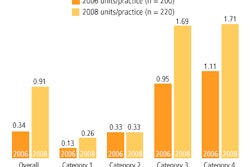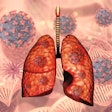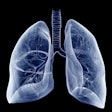The New England Journal of Medicine has changed its financial disclosure policies following controversy over a research paper on CT lung cancer screening that did not mention the authors' financial ties to a CT manufacturer.
NEJM is now requiring all authors to submit a form regarding external financial ties, and to disclose those ties if any are present, according to a report published in the January 9 edition of the Cancer Letter. The policy change underscores an increasingly fraught disclosure environment for publishers that has resulted from the growing influence of commercial funding in medical research.
The journal's policy change was sparked by a complaint from the Accreditation Council for Continuing Medical Education (ACCME) of Chicago, which in March 2008 took issue with NEJM's failure to disclose the potential financial conflicts of a 2006 lung cancer screening study by Dr. Claudia Henschke, Ph.D., and colleagues from Weill Medical College of Cornell University in New York City (NEJM, October 26, 2006, Vol. 355:17, pp. 1763-1771).
ACCME faulted the journal for not publishing information that Henschke, co-author Dr. David Yankelevitz, and their university had licensed a patent related to CT screening methods to scanner manufacturer GE Healthcare of Chalfont St. Giles, U.K. Henschke and Yankelevitz reported receiving royalties from Cornell Research Foundation as inventors of methods to assess tumor growth and regression on imaging tests for which pending patents are held by Cornell Research Foundation and licensed to GE, according to an April 24 correction reported by the journal.
By choosing not to publish the information with the initial study, the journal and its publisher, the Massachusetts Medical Society (MMS), violated ACCME guidelines requiring disclosure and management of potential conflicts of interest, ACCME stated. Henschke's team said they submitted the disclosure information with their draft article, but the information did not make it into the final version of the study as published by the journal.
ACCME accredits NEJM for articles that are offered as continuing medical education (CME) in the journal. Both ACCME's charges and NEJM's response are detailed in correspondence between ACCME and the Massachusetts Medical Society, which are archived on the Cancer Letter's Web site.
"The Massachusetts Medical Society failed to disclose accurate and complete information about certain relevant financial relationships causing conflict of interest in a continuing medical education activity presented as part of their ACCME-accredited continuing medical education program," wrote ACCME education director Steve Singer in a December 19, 2008, letter to Cancer Letter editor Paul Goldberg.
As a result, MMS was required to submit a notice of corrective action that the ACCME could use to determine that the MMS had been brought into compliance. In its October 2008 response, MMS vowed to overhaul its disclosures policies.
"When we published Dr. Henschke's article in 2006, it was not routine NEJM editorial policy to publish details about pending patents," explained MMS vice president Corinne Broderick in a letter to ACCME dated October 1, 2008. As a result of the criticism, all authors are now required to complete a form that asks: "Do you have any patents or royalties, have you served as an expert witness, or do you perform other activities for an entity with a financial interest in this area?"
Authors who respond in the affirmative must provide a full disclosure of the financial relationship, the letter states. In the letter the MMS also said it had updated its CME conflict of interest policy.
"We continue to increase our vigilance with regard to conflict of interest to ensure that we are fully transparent to our readers and learners," the MMS letter continued. "Our editors routinely edit the content of research reports and reviews for balance to ensure that the interpretation matches the data, regardless of the presence of disclosures." All relevant corrections had been published to the original 2006 article, she added.
On Monday, an NEJM spokesperson told AuntMinnie.com that its policy revisions were complete. "The letter we provided to the ACCME on October 1 outlines corrective actions and changes to our CME procedures," wrote NEJM media relations manager Karen Buckley. "The ACCME has accepted this letter and both parties now consider the matter to be resolved."
The disclosure flap is not the first to befall the widely discussed lung cancer study, which had seen two earlier corrections. As reported last August on AuntMinnie.com, the researchers had failed to disclose that the study received $3.6 million in funding from cigarette manufacturer Liggett Group. NEJM said it had been unaware of the funding. An earlier correction involved patients in the study cohort.
None of the corrections has altered the study's conclusions, which suggest a strong link between the resection of early-stage cancers and increased survival, although the methodology has been criticized for the study's lack of a control group.
By Eric Barnes
AuntMinnie.com staff writer
January 13, 2009
Related Reading
Lung cancer study results corrected, August 22, 2008
NEJM issues correction on Henschke lung cancer study, April 3, 2008
Divergent research on CT lung screening sparks more debate, fewer answers, April 7, 2007
CT lung cancer screening reduces mortality, October 26, 2006
Copyright © 2009 AuntMinnie.com
